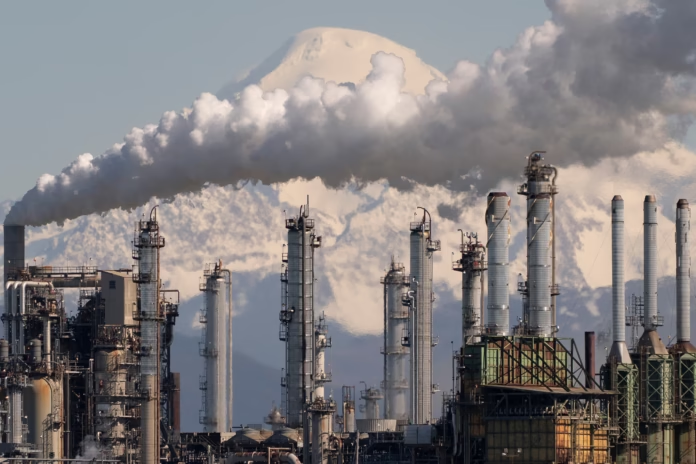Oil prices dropped sharply on Monday, driven by rising fears of economic slowdown and geopolitical uncertainty. Traders reacted to growing concerns over global demand and U.S. trade policy shifts.
Brent crude fell below $67 a barrel, losing nearly 2% during early trading. West Texas Intermediate hovered around $64. These declines reflect deepening worries that tariffs and trade wars are dampening global economic activity.
Additionally, talks between the United States and Iran added another layer of volatility. Over the weekend, Iranian officials reported progress in nuclear discussions with Washington. Further talks are scheduled this Wednesday in Oman. If successful, they may bring Iranian crude back into global markets.
“Everything is flashing bearishness from macro, to fundamentals, and to geopolitics,” said Gao Jian of Qisheng Futures. His sentiment highlights the growing pessimism across energy markets.
Meanwhile, U.S. stock futures dipped, and the dollar weakened to its lowest level since January 2024. President Trump criticized the Federal Reserve again, fueling investor anxiety. The oil market sentiment turns bearish in response to these mixed signals.
OPEC+ has added pressure by ramping up production faster than expected. This has sparked new concerns about a supply glut in an already fragile market. April has seen oil prices drop to a four-year low, emphasizing investor fears.
On top of that, the International Monetary Fund is expected to release updated economic forecasts. These projections may further influence oil demand expectations worldwide.
Elsewhere, a potential ceasefire in Ukraine could ease sanctions against Russia. However, President Zelenskiy accused Kremlin forces of violating an Easter truce, complicating peace prospects.
Contango pricing where future contracts cost more than near-term ones—has reappeared, signaling bearish expectations.
While some global markets were closed for Easter, trading volume remained thin. Still, the oil market sentiment turns bearish as investors brace for more policy shifts and economic risks.
For more business updates, visit DC Brief.


